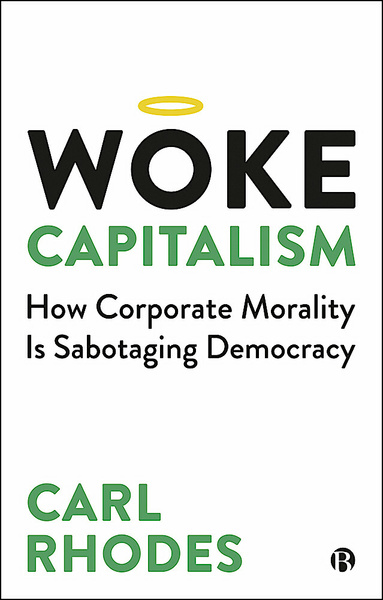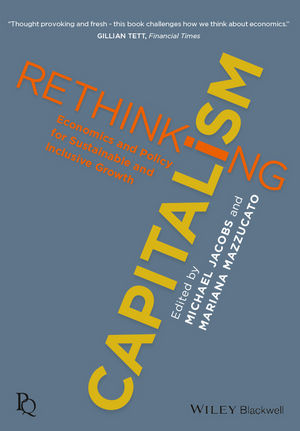El mito del votante racional. Por qué la democracia lleva a tomar malas decisiones políticas
Res de nou. Bon diagnòstic i absència de teràpia en el llibre. Tal com votem ens allunya d'un suposat comportament racional. Això és el que va defensar Bryan Caplan el 2007 i que resumeix les troballes d'altres autors anteriors i al que posteriorment l'han seguit d'altres. Si voleu més material, el trobareu en aquest blog sota el títol de les emocions en la formació de les preferències polítiques. En relació a les propostes hi ha una col·lecció que podeu consultar sota el títol podem reimaginar-nos un nou capitalisme? i can capitalism be reimagined?
Llibre resumit amb IA
A "El Mito del Votante Racional", Bryan Caplan argumenta de manera provocadora contra la suposició tradicional en economia política que els votants prenen decisions racionals i ben informades. Caplan sosté que, en canvi, les creences del públic sobre economia estan plagades d'errors sistemàtics severs, i que aquesta irracionalitat no és aleatòria sinó fins i tot "racional" en cert sentit.
En el Prefaci, Caplan expressa la seva sorpresa per la recepció relativament sensata del llibre, tenint en compte que qüestiona un dogma central de la democràcia. Reconeix la crítica que és millor diagnosticant que receptant, però argumenta que la manca de voluntat del pacient per prendre la medicina no invalida el tractament. Malgrat això, no advoca pel fatalisme, suggerint que hi ha marges de maniobra per promoure polítiques més sensates. També anima els economistes a escriure llibres per desenvolupar completament les seves posicions i arribar a un públic més ampli.
El llibre es basa en la idea que, igual que els experts mereixen el benefici del dubte, també ho mereixen les conclusions consensuades dels economistes, inclosa la hipòtesi de la irracionalitat del votant.
El Capítol 1, "Més enllà del miracle de l'agregació", introdueix la idea que el coneixement dels votants sobre política és limitat. Critica la visió optimista del "Miracle de l'Agregació", que sosté que, malgrat la ignorància individual, la decisió col·lectiva dels votants pot ser tan encertada com la d'un electorat plenament informat. Caplan refuta aquesta idea amb l'argument que els errors del públic en qüestions econòmiques no són aleatoris, sinó sistemàtics i esbiaixats. Identifica quatre "biaixos" principals en la comprensió pública de l'economia:
- Biaix antimercat: La societat no comprèn la "mà invisible" del mercat i la seva capacitat d'harmonitzar l'afany de lucre privat amb l'interès general.
- Biaix antiestranger: La societat minusvalora els beneficis de les relacions comercials amb l'estranger.
- Biaix de la creació d'ocupació: La societat equipara la prosperitat amb el nivell d'ocupació en lloc de la producció de béns i serveis.
- Biaix pessimista: La societat tendeix a creure que les condicions econòmiques sempre són dolentes i que empitjoren.
Caplan argumenta que aquests biaixos sistemàtics fan que el resultat polític estigui lluny de ser socialment òptim, ja que la "saviesa" de la multitud es veu distorsionada per errors compartits.
El Capítol 2 se centra en l'evidència empírica d'aquests biaixos a través de la "Enquesta a Americans i Economistes sobre l'Economia" (SAEE). Aquesta enquesta revela divergències sistemàtiques i de gran magnitud entre les conviccions del públic general i les dels economistes professionals sobre una àmplia gamma de qüestions econòmiques. Caplan aborda l'objecció que els experts també poden tenir biaixos, com el "biaix interessat" degut als seus salaris elevats i seguretat laboral. Tanmateix, defensa la idea que les diferències sistemàtiques entre experts i profans suggereixen biaixos en aquest últim grup. Explica que les preguntes de la SAEE es van seleccionar per la seva rellevància pública i mediàtica, no per maximitzar el desacord entre experts i legos. La SAEE confirma la realitat d'aquestes divergències, demostrant que el "Miracle de l'Agregació" no es produeix amb freqüència en matèria econòmica.
El Capítol 3 explora les possibles fonts de la irracionalitat pública. Caplan argumenta que la "ignorància racional", la idea que els votants no tenen incentius per informar-se a causa de la insignificància del seu vot individual, no és l'explicació principal. En canvi, proposa el concepte d'"irracionalitat racional": la idea que la gent tria tenir creences irracionals perquè els beneficis psicològics (com ara sentir-se bé amb el propi grup o ideologia) superen els baixos costos materials de mantenir aquestes creences en el context polític.
El Capítol 4, "La escola de la elección pública clásica y qué falla en la ignorancia racional", critica la visió de l'Escola de l'Elecció Pública clàssica, que atribueix el mal funcionament del govern a la ignorància racional dels votants. Caplan sosté que la irracionalitat va més enllà de la simple manca d'informació; implica una resistència activa a la veritat quan aquesta contradiu les creences preferides. Argumenta que la gent pot preferir aferrar-se a idees esbiaixadess si aquestes reforcen la seva identitat o visió del món.
El Capítol 5, "Irracionalidad racional", desenvolupa en detall aquest concepte. Compara la irracionalitat amb un bé que es consumeix, amb una "corba de demanda d'irracionalitat": com més baix és el "preu" (els costos materials de mantenir una creença irracional), més "quantitat" d'irracionalitat es consumeix. En política, el cost individual de tenir una creença econòmica equivocada és molt baix, ja que un sol vot té una probabilitat gairebé nul·la de canviar el resultat. Això permet que els votants expressin les seves emocions i prejudicis ideològics sense patir-ne les conseqüències materials directes. Caplan discuteix la "versemblança psicològica" de la irracionalitat racional, argumentant que la racionalitat roman "a l'espera", disposada a intervenir només quan l'error esdevé perillós a nivell personal.
El Capítol 6, "De la irracionalidad a la política", examina com la irracionalitat del votant es tradueix en polítiques públiques insensates. Amb votants unànimes en els seus biaixos, les conseqüències per a les polítiques són clares (controls de preus, proteccionisme, regulació laboral per "crear" ocupació). Tot i que la realitat és més complexa amb votants heterogenis, Caplan argumenta que els biaixos sistemàtics influeixen significativament en la demanda política. També discuteix la idea del "vot expressiu", on la gent vota per manifestar la seva identitat i creences més que per influir en el resultat de les polítiques. Cita exemples com els sudistes abans de la Guerra Civil americana, que sobreestimaven el seu poder militar per motius ideològics.
El Capítol 7, "La irracionalidad y la oferta política", analitza com els actors de l'oferta política (polítics, funcionaris, mitjans de comunicació) responen a la irracionalitat dels votants. En comptes de corregir les creences errònies, sovint els resulta més rendible exacerbar-les per guanyar suport. Els polítics sincers que defensarien polítiques econòmicament sòlides poden tenir dificultats per ser elegits si el públic manté opinions contràries i esbiaixades. Això porta a un cicle on la demanda irracional genera una oferta política que la satisfà, perpetuant polítiques subòptimes.
El Capítol 8, "El «fundamentalismo del mercado» contra la religión de la democracia", contraposa la lògica del mercat amb la del sistema democràtic. Mentre que els mercats proporcionen mecanismes per corregir errors i recompensar la informació (com els mercats de futurs), la democràcia es veu afectada per la irracionalitat sense costos per a l'individu. Caplan critica el rebuig públic al "Mercado para el Análisis Político" (PAM), un intent de crear un mercat de prediccions sobre esdeveniments polítics, com a exemple de la prevalença del "dogma antimercado" fins i tot davant de proves de l'eficàcia dels mercats per agregar informació.
La Conclusió, "Elogio del estudio de la locura", reitera la importància de comprendre i estudiar la irracionalitat en la política. Caplan argumenta que les teories basades en la suposició de la racionalitat perfecta tenen un valor científic marginal limitat. Emfatitza que la irracionalitat no només afecta la demanda política sinó també l'oferta, i que sovint és més rendible per als actors polítics explotar la irracionalitat que intentar-la corregir. Conclou que les ciències socials han obstaculitzat el seu propi progrés al no reconèixer el paper central de la neciesa en afers polítics.
Al Apèndix Tècnic, es detallen els factors que correlacionen amb una manera de pensar més propera a la dels economistes, com ara un major nivell d'educació, ser home, i expectatives d'ingressos futurs més elevades.
En resum, "El Mito del Votante Racional" presenta un argument desafiant i ben fonamentat que la irracionalitat sistemàtica dels votants és un factor clau per comprendre els defectes de les democràcies modernes. Caplan distingeix entre ignorància racional i irracionalitat racional, argumentant que la segona és una elecció influïda per incentius psicològics i que té profundes implicacions per a la qualitat de les polítiques públiques. El llibre convida a reconsiderar les suposicions bàsiques de l'economia política i a prestar més atenció al paper de les creences esbiaixades en el procés democràtic.

PS. Una víctima més dels paranys de la política ha estat Amanda Pritchard, que ha perdut la feina després que tanquessin el NHS England com agència pública. Una executiva Kleenex més. Tretze anys després desapareix l'experiment d'allunyar la politització de la gestió sanitària a Anglaterra, per aquí aprop ni tant sols ho hem intentat. RIP. Les claus per entendre la política i la gestió sanitària del moment les trobareu dins l'entrevista d'avui a FT. Malauradament no hi haurà resposta i cal recordar als que no se n'han adonat, que la degradació de la cosa pública ha agafat una forta empenta, tant forta com la pressió fiscal.








